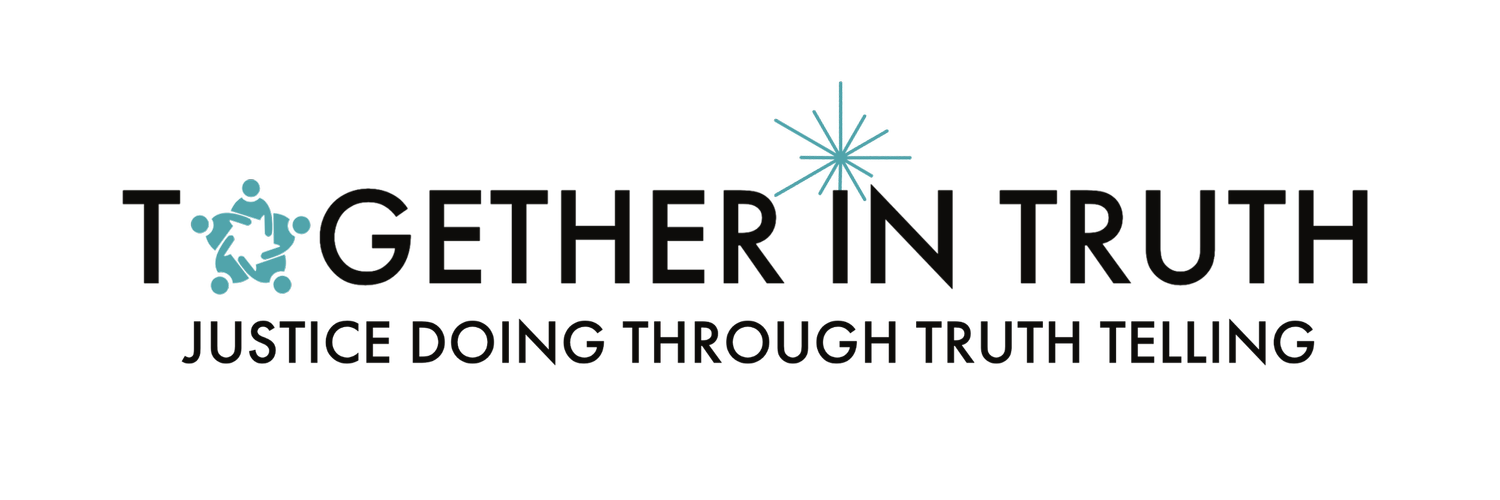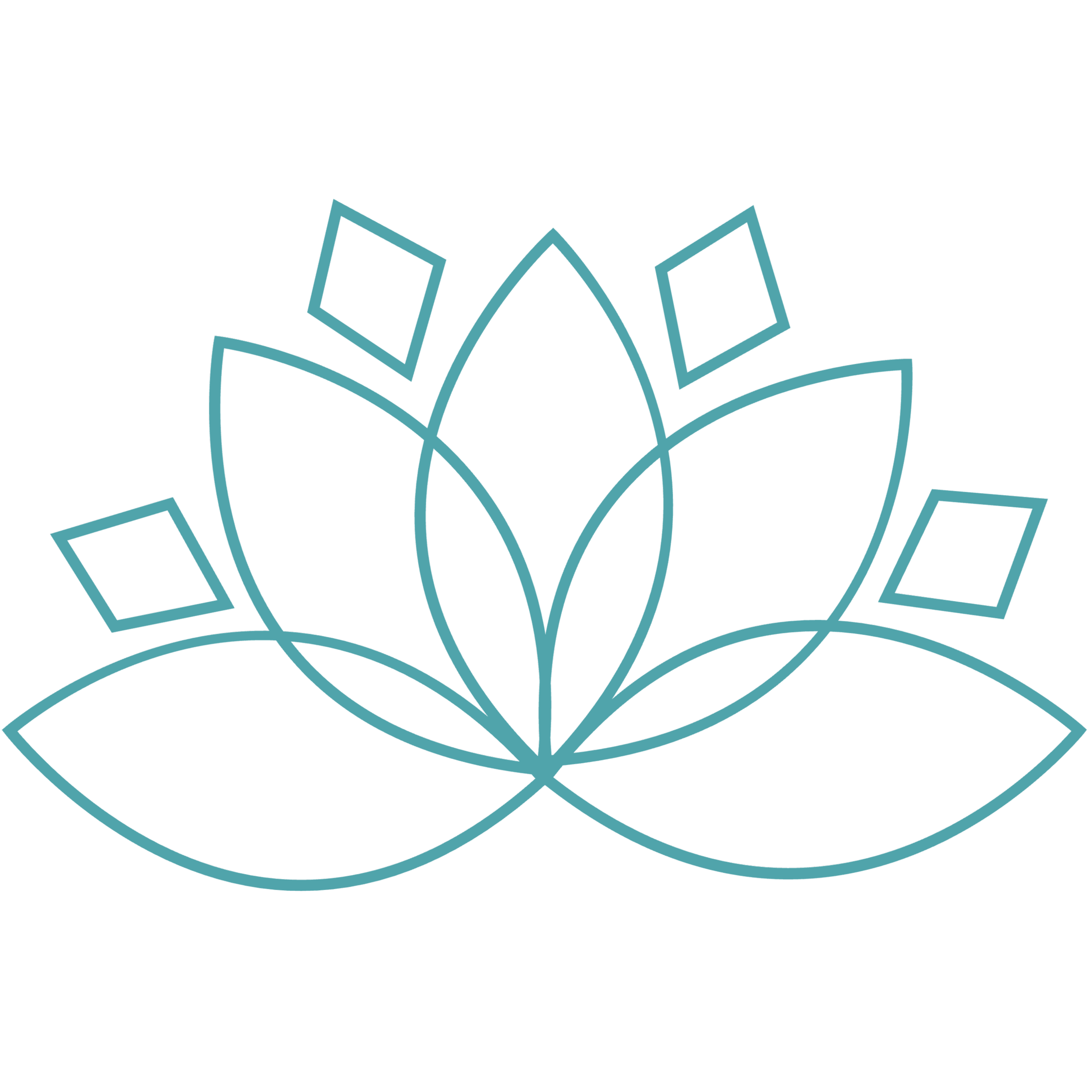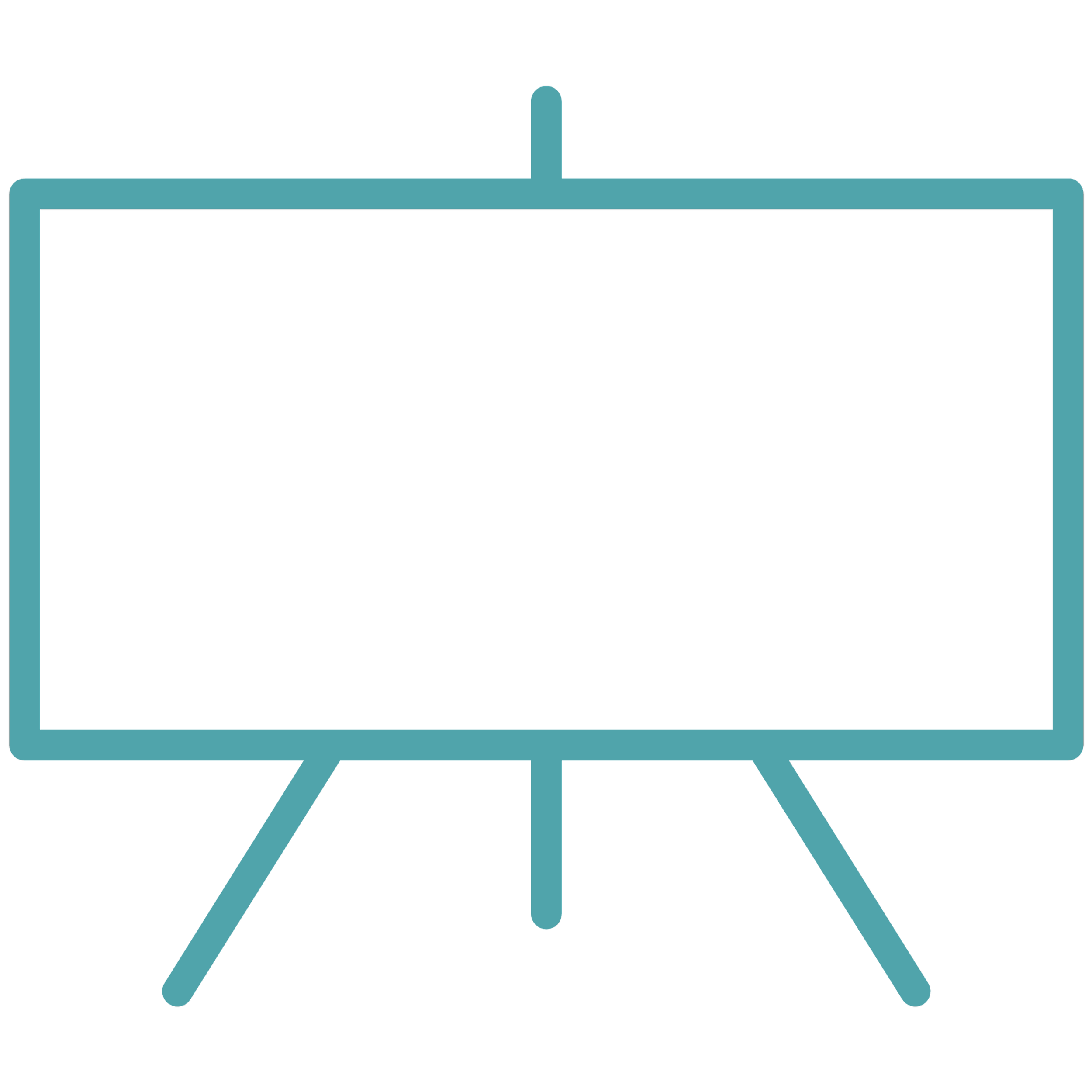
Core Concepts
Since 2022, the Together in Truth team has worked with three communities (Louisville, KY; Washington, D.C.; and Nambe Pueblo, NM) to support them in designing and implementing truth-telling circles. The experiences of these communities, led by former African American foster youth, impacted parents, and tribal leaders, respectively, led us to develop guidance materials to expand truth-telling practices across the country. With these communities and a national advisory committee representing impacted persons and those with professional child welfare experience, we have captured an array of core concepts that communities may use when embarking on a truth-telling journey.
These core concepts presented as part of this guidance system were gathered through deliberate, complex, challenging and action-oriented conversations about truth-telling in child welfare.
Represented were the different viewpoints of Abolitionists, Safety-Centered Practitioners, Reformers, Transformers, and Institutionalists. Generally speaking, Abolitionists believe the child welfare/family-policing system needs to be dismantled and replaced with something entirely different. Safety-Centered Practitioners believe it is of the utmost importance that this system protect children from harm. Reformers believe the system is broken and needs to be improved, whereas Transformers believe this system is working as intended and still must be fundamentally redesigned. The Institutionalists believe that there is no alternative to the current system and that any change is impossible or undesirable. These are not five mutually exclusive categories but, rather, different ways of approaching the problem of policing and justice in our society. Our goal is to find common ground among these perspectives and acknowledge that on any point of this pentagon shape (or anywhere in between) there is, if nothing else, a requirement to tell the truth about the harms of our systems, historical and current, so that we may identify a better way together. In these spaces of diverse views, we welcome the complexity as an opportunity to practice the action of truth telling together, rather than in individual monolithic spaces. Gathering the perspectives and possibilities from these differences and exploring the space in the middle is where we can find common ground and creative solutions.
Staying in one’s corner only leads to a lack of change and progress. Through truth-telling, we believe that we may engage in wise disagreements and encounter different perspectives that challenge our assumptions and beliefs.
Through truth-telling, we imagine a just future. Sharing power means accessing decision-making, resources, information, and accountability. It means recognizing and honoring the dignity and agency of every person, especially those marginalized and oppressed by child welfare systems. It means working together as allies and accomplices, not as enemies or competitors.
As communities embark on truth-telling, the Together in Truth Team offers these core constructs as guideposts for communities’ consideration. This is not an exhaustive list. You may accept some, none or all of these core constructs. You can use them to generate other core constructs that are important to your community’s truth-telling efforts. Our interpretation does not have to resemble yours. We offer these humbly to support your community’s design of truth-telling circles.
-
![]()
Belonging
“The essential principle around here is that we belong to each other, and every single person is unshakably good, so there is no need to sever belonging. There is no need to say: You’re in and you’re out." - Fr. Greg Boyle
By hearing the truth and telling the truth, we create and nurture a sense of belonging and reduce isolation and loneliness, allowing us to see each other more clearly. By acknowledging the current truth and when we see one another, we may hold new truth together: parents, grandparents and other family members are the agents of change in their children's lives. The role of government agencies is to support families, recognizing family groups are the solution to child and family safety. Child welfare systems have damaged peoples' sense of belonging and identities by embedding the colonizing code of separating children from everyone they know and love and from their community.
-
![]()
Beloved Community
“Our goal is to create a beloved community and this will require a qualitative change in our souls as well as a quantitative change in our lives.” - Dr. Martin Luther King Jr.
Dr Martin Luther King popularized the notion of the "Beloved Community." King envisioned the Beloved Community as a society based on justice, equal opportunity, and love of one's fellow human beings. As explained by The King Center, the memorial institution founded by Coretta Scott King to further the goals of Martin Luther King: Dr King's Beloved Community is a global vision in which all people can share in the earth's wealth. In the Beloved Community, poverty, hunger and homelessness will not be tolerated because international standards of human decency will not allow it. An all-inclusive spirit of sisterhood and brotherhood will replace racism and all forms of discrimination, bigotry and prejudice. Truth-telling is supportive and loving within a beloved community framework, creating a brave and safe space for all.
-
![]()
Collectivism
“It is in collectivities that we find reservoirs of hope and optimism.” - Angela Davis
This emphasizes the collective rather than individual action or identity. Collectively, the individual histories and testimonies tell the story. Through truth-telling, we practice speaking together with people who have differing viewpoints. This promotes a collective recovery by encouraging repeated practices of talking together. We believe change is possible when we come into a shared space with those with different perspectives.
-
![]()
Data Sovereignty
“No matter how it was collected, where it was collected, when it was collected, our language belongs to us. Our stories belong to us. Our songs belong to us.” - Ray Taken Alive
People and communities hold the right and authority to identify, share, and distribute their data and information. Data lives in many formats, and the truth-telling process often acknowledges a redistribution of power back to people and communities. Lived experience is expertise and evidence, and the acknowledgement and action of this sovereignty respects the dignity and autonomy of those harmed by historical injustice and oppression and prevents further exploitation and discrimination based on data.
-
![]()
Decolonization
“Our radical imagination is a tool for decolonization, for reclaiming our right to shape our lived reality.” - Adrienne Maree Brown
Decolonization is about “cultural, psychological, and economic freedom” for marginalized groups to achieve sovereignty — the right and ability of marginalized groups to be free from external control of dominant cultures and political and economic systems. Colonialism is a historical and ongoing global project where settlers continue to occupy land, dictate social, political, and economic systems, and exploit Indigenous people and their resources. Decolonization is the process of revealing and dismantling colonialist power in all its forms. This includes dismantling the hidden aspects of those institutional and cultural forces that had maintained the colonialist power and remain even after political independence. Truth-telling provides a safe and brave space to encounter and engage with this process.
-
![]()
Healing-Informed
“We must understand and heal the wounds of the past before we can move forward.” – Oprah Winfrey
To heal the social, economic and political settlement requires people to gather and tell the truth. New ways of living together can be imagined by witnessing and acknowledging these truths. Traditional healing methods are welcomed in place of colonizing processes that have shaped our systems. Individualizing responsibility in the parent, child and family is a hegemonic response by the industry and its favored disciplines (social work/ psychiatry) who feel unable and ill-equipped to confront the problem's root causes: intentional social, economic, racial and gender inequality. The trauma narrative is an individual responsibility narrative popular now, used to avoid collective responsibility for those who inflict traumatic life conditions on vulnerable people and groups. We cannot heal from the effects of trauma while actively being traumatized and consuming each other's suffering. Self-healing communities position and recognize parents, grandparents, and other family members, not the government, as the change agents in their children's lives. With truth-telling, there is an opportunity for healing which can transform pain into power.
-
![]()
Inclusivity
“We need to give each other the space to grow, be ourselves, and exercise our diversity. We need to give each other space so that we may both give and receive such beautiful things as ideas, openness, dignity, joy, healing, and inclusion.” - Max de Pree
Inclusivity is a deep value for healing, connecting and communicating in truth-telling processes. We acknowledge their dignity and worth when we include everyone's voices and perspectives. We also create a safe space for healing from past wounds and traumas. We can build trust and understanding by listening to each other with empathy and respect. Further, by sharing our stories and experiences, we can learn from each other and grow together. Inclusivity is not just a nice thing to do; it's required to heal ourselves and our communities.
-
![]()
Justice Doing
“If we find the courage to tell truth, something good will happen. Something is waiting for us that feels more like freedom or equality or justice—but to get there, we have to do the hard work.” - Bryan Stevenson
Justice cannot be achieved without truth-telling. Systems stay entrenched when people choose a path of not thinking critically, when they cannot express their values when they get their identity from others, and when systems exclude diverse voices and perspectives. Together in Truth is not about debating harm or the magnitude of the harm, as there is evidence from past and current that children, families, and communities experience harm. We can no longer remain quiet. Creating truth-telling spaces destabilizes the dominant narrative. Wherever there is resistance to unearthing more just narratives, oppression is at work. Truth-telling helps us to resist this injustice by organizing and advocating for true and just family support rather than surveillance and separation.
-
![]()
Lateral Violence
“The ultimate weakness of violence is that it is a descending spiral; returning violence with violence only multiplies violence, adding deeper darkness to a night already devoid of stars.” - Martin Luther King Jr.
Lateral oppression is displaced violence directed against one’s peers rather than oppressors. Structures of laws and policies uphold lateral oppression. This construct is one way of explaining violence between marginalized groups. Applied to a child welfare context, the conflict amongst those with child welfare expertise about system change—whether it is necessary and, if so, identification of the right and just solutions--further entrenches the system. The status quo is sustained as these oppressed groups of experts debate and fight with one another. Truth-telling breaks the cycle of violence and recognizes that reform is unachievable until we tell the truth and co-create solutions across groups.
-
![]()
Meta-Conflict
“Peace is not the absence of conflict, but the ability to cope with it.” - Dorothy Thomas
Meta-conflict is a crucial concept to understand when embarking on a truth-telling process because it can help identify the root causes of the conflict and the different perspectives of the people involved. Meta conflict is simply conflict about what the conflict is. For example, one group may see the conflict as a struggle for justice, while another may see it as a threat to their identity. By acknowledging and addressing meta-conflict, truth-telling processes can foster dialogue, mutual understanding and healing among the conflicting parties. Naming the meta-conflict also invites us to step out of the conflict story and into the wisdom of truth from the experiences of oppression, racism, and othering.
-
![]()
Moral Injury
“With regards to the harms caused by the child welfare industry, we must move from private knowing to collective naming to public reckoning.”—Together in Truth catalysts
Moral injury is the damage done to one's conscience or moral compass when that person perpetrates, witnesses, or fails to prevent acts that transgress one's moral beliefs, values, or ethical codes of conduct. Service providers experience moral injury when policy and decision-making conflict with personal values; acknowledging this requires difficult conversations. There is both liberation and a price to be paid for truth-telling. It will require narrating and taking risks to acknowledge moral distress. While those who have worked as agents of the system can experience suffering as they work to reconcile the harms they caused, it is essential not to conflate or equalize their suffering with those impacted by child welfare systems. While truth-telling can create a space for a collective experience of suffering, collective harm isn’t the same as equal harm.
-
![]()
Post-Traumatic Wisdom
“Post-traumatic wisdom is the experience where you’ve been able to get through adversity, and you’re now at a safe place in your life and can look back and reflect and take what you’ve learned and use that to see the world differently.” – Dr Bruce Perry
We recognize that child welfare systems have perpetrated trauma on minority communities and that trauma spans families’ intergenerational lifetimes and has toxic economic and health impacts on individuals and communities. Service providers also experience primary and secondary trauma as participants in the system. Humans are made uniquely capable by their experiences, and the crux of truth-telling is to glean: What did you learn from this experience, and what would you do differently? Wisdom is in the encounter, and the reflection process and truth-telling processes create the opportunity to elicit unseen capabilities.
-
![]()
Power of Encounter and Relationship
“Relationships matter: trust is the currency for systemic change, and trust comes through forming healthy working relationships. People, not programs, change people.”-Dr. Bruce Perry
There is power, energy, and strength in people encountering and truly seeing one another. Relationships, experiences and environments build life-long health and well-being. Through truth-telling processes that uplift relationships and encounter others, we welcome complexity rather than simplistic explanations. We learn to live together or at least disagree more wisely. We create spaces for deep dialogue, which is often messy and personal, and where people are seen deeply and feel they are deeply known. Witnesses are not passive observers; they embrace the sacredness of bearing witness, seeking first to understand, protecting relationships, and recognizing that healing happens in encounters.
-
![]()
Reconciliation
“There can be no peace unless there is reconciliation.” - Desmond Tutu
Reconciliation is not just a word; it's a way of living together. It means acknowledging the past, healing the wounds, and building a better future for everyone. It means listening to each other, respecting each other, and learning from each other. It means creating a space where truth can be spoken and heard, justice can be done, and peace can be restored. Reconciliation is a concept and a value that we must embrace in one another.
-
![]()
Reparation
“Justice requires not only the ceasing of injustice but also requires either punishment or reparation for injuries and damages inflicted for prior wrongdoing.” - Amos Wilson
There has been a growing call for colonizers to take accountability for the injustices created by our governments. The criticisms of how the child welfare system operates will not stop until the wrongdoing stops. History demonstrates that we repeat what we don't repair. Reparations require changed behaviors, to do differently. Truth-telling, without action, is an extractive process that further perpetuates harm. This truth-telling effort is about repositioning power in the community.
-
![]()
Resilience
“We are powerful because we have survived, and that is what it is all about- survival and growth.” ― Audre Lorde
Resilience is the ability to bounce back from challenges and hardships. It's not about avoiding pain or pretending everything is fine, but rather recovering from this pain. It's about facing the truth with courage and compassion. Resilience is a value we must embrace in a truth-telling process because it helps us heal from the past, learn from our mistakes, and grow as human beings.
-
![]()
Restorative Practice
“I've learned that people will forget what you said, people will forget what you did, but people will never forget how you made them feel.” - Maya Angelou
Restorative practice is a way of working with people and conflicts that focuses on repairing harm and building healthy relationships. It is not a fixed process, but a way of being with others. As we work to close the gap between what we do and what we know, the restorative practice of truth-telling creates the opportunity to acknowledge what “we” got right and what “we” got wrong. In this context, when we work restoratively, we receive truths with compassionate ears, listen to understand and contribute to the other person’s truth, and build empathy. Often, in truth-telling circles, new insights and emotions can surface. Working restoratively is a testament to the belief in the goodness of humanity and that it is possible to repair harm.
-
![]()
Slow Violence
“Slow violence provokes us to expand our imaginations of what constitutes harm. It insists we take seriously forms of violence that have, over time, become unmoored from their original causes.” - Thom Davies
Slow violence happens when a society causes harm to its citizens and their property, often invisibly, through social or health inequities, racism, sexism or another systemic means. Slow violence is too incremental to make headlines or provoke outrage, and disproportionately impacts economically impoverished communities. Slow violence manifests itself with everyday citizens perpetuating everyday harms, by living within an unjust culture. Within a child welfare context, we believe there is an incomplete story of brokenness and unnecessary forcible family separation that needs to be told. We believe that we must root out parts of the child welfare system that are built to maintain white privilege and power such as the colonizing code of separation creating safety. As critical will be acknowledging the traumas and wounds that inform and create the violence that we enact on others. Individually and collectively, we have been reforming child welfare for decades. That is a form of slow violence. Truth telling invites us to name and reckon with the slow violence that aids in perpetuating this unjust system.
-
![]()
Spirituality
“We cultivate love when we allow our most vulnerable and powerful selves to be deeply seen and known, and when we honor the spiritual connection that grows from that offering with trust, respect, kindness, and affection.” - Brené Brown
Spirituality is more than just a belief or a practice. It is a way of being, of connecting with ourselves, others and the world. It is a value that guides us to live with honesty, compassion and respect. When we honor spirituality, we acknowledge that there is something bigger than us, something that transcends our individual stories and perspectives. We embrace the truth that we are all interconnected and interdependent and have a responsibility to care for each other and the planet. Honoring spirituality is essential for truth-telling because it helps us listen openly, speak with courage, and heal with love.
-
![]()
Whiteness
Some White people do not identify as White for the same reason they identify as not-racist: to avoid reckoning with the ways that Whiteness—even as a construction and mirage—has informed their notions of America and identity and offered them privilege, the primary one being the privilege of being inherently normal, standard, and legal.” - Ibram X. Kendi
Whiteness is not just a skin color but a system of power and privilege that shapes our society. It is often invisible to those who benefit from it but oppressive to those who don't. To create a more just and inclusive world, we must confront whiteness and its effects on ourselves and others. We need to tell the truth about how whiteness has harmed and how it has distorted our identities and values. We need to listen, learn, and take action to dismantle whiteness and its structures of domination.
-
![]()
White Supremacy
“The ideology that whiteness is supreme, better, best, permeates the air we breathe – in our schools, in our offices and in our country’s common life. White supremacy is a tradition that must be named and a religion that must be renounced. When this work has not been done, those who live in whiteness become oppressive, whether intentional or not.” - Austin Channing Brown
White supremacy is the idea that white people and their ideas, thoughts, beliefs, and actions are superior to those of Black, Indigenous, and People of Color. As DismantlingRacism.org states, “Drawing from critical race theory, the term ‘white supremacy’ also refers to a political or socio-economic system where white people enjoy the structural advantage and rights that other racial and ethnic groups do not, both at a collective and an individual level.” White supremacy envelopes the child welfare system and is the lens through which impacted families are judged. It is the lens from which our explicit and implicit biases stem. It contributes to children and families of color being disproportionately represented in the child welfare system. Truth-telling calls us to name this oppressive ideology and its manifestation within the child welfare system so that we may envision a just and equitable way of supporting children, parents, families, and communities.





















